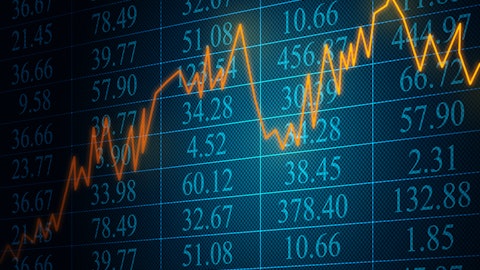In this piece, we will take a look at the 5 most profitable bank stocks to invest in. If you want to go through our introduction to the banking industry and the stock market, then head on over to 11 Most Profitable Bank Stocks To Invest In.
5. Morgan Stanley (NYSE:MS)
Latest TTM Net Income: $9.26 billion
Number of Hedge Fund Holders: 59
Headquartered in Midtown Manhattan, New York City, Morgan Stanley (NYSE:MS) is a global investment bank and financial services company. With operations spanning 41 countries and a workforce exceeding 75,000 employees, the firm caters to a diverse clientele, including corporations, governments, institutions, and individuals. On October 18, the company declared a quarterly dividend of $0.85 per share, which was in line with its previous dividend. As of December 12, the stock has a dividend yield of 3.98%.
As of the end of Q3 2023, 59 hedge funds in Insider Monkey’s database owned stakes in Morgan Stanley (NYSE:MS), growing from 54 in the preceding quarter. These stakes are collectively valued at more than $2.5 billion.
4. Citigroup Inc. (NYSE:C)
Latest TTM Net Income: $12.3 billion
Number of Hedge Fund Holders: 79
Citigroup Inc. (NYSE:C), commonly referred to as Citi, is an American multinational investment bank and financial services corporation incorporated in Delaware, with its headquarters located in New York City.
On November 2, Bloomberg reported that Citigroup Inc. (NYSE:C) and The Goldman Sachs Group had been chosen to lead the initial public offering (IPO) of Ibotta, a digital marketing software firm. The expected valuation for the IPO is $2 billion, and it is anticipated to take place in the upcoming year.
As of the end of the third quarter of this year, Insider Monkey’s survey of 910 hedge funds revealed that 79 had purchased and held shares of Citigroup Inc. (NYSE:C). Among these, the largest investor is Warren Buffett’s Berkshire Hathaway, with a stake valued at $2.2 billion.
Silver Beech Capital mentioned Citigroup Inc. (NYSE:C) in its third quarter 2023 investor letter. Here is what it said:
“Citigroup (“Citi”) is a large-capitalization global diversified financial services holding company that primarily serves multinational institutional and high net worth consumer clients. Citi is one of three large American banks to be designated in “bucket 3 or 4” of the “global systemically important bank” (“G-SIB”) framework by The Basel Committee on Banking Supervision. The other banks in this group are J.P. Morgan and Bank of America.
As a G-SIB, Citi is subjected to increased regulatory supervision by global bank regulators and central banks. Enhanced regulatory supervision was an important post-crisis reform to strengthen the global financial system by increasing bank capital ratios, transparency, and decreasing risk-taking. These reforms resulted in the largest G-SIBs moving away from risk-oriented banking activities such as advisory, high-yield lending, and trading, towards lower-risk activities. Indeed, Citi’s most valuable, high-growth segment, Treasury and Trade Solutions, is in lower-risk and entrenched activities such as liquidity and cash management, payments, trade solutions, and automated receivables processing. In our view, somewhat unintuitively, Citi’s increased regulatory supervision contributes to the company’s less risky banking business model, and thus its attractiveness as a downside-oriented investment opportunity.
Citi’s market perception suffers from the bank’s negative historical reputation. In 2008 during the Great Financial Crisis, Citi received the most TARP funding (the largest “bailout”) of the U.S. banks. TARP funding was provided by the U.S. government to forestall a liquidity problem that threatened to become a solvency problem. More recently, Citi mistakenly used its own capital to pay lenders when acting as Revlon’s loan agent, resulting in a $400M fine by the Federal Reserve and orders to resolve internal controls (which Citi fulfilled). Citi’s large global consumer bank was assembled by prior management in the early 2000s to attract and service high-end global consumers. Unfortunately, this pivot was costly and ill-timed in the context of increasingly complex multi-jurisdictional regulation to prevent money laundering and tax evasion. The global consumer bank has been a drag on Citi’s overall performance.
We believe the market dislikes Citi for these historical reasons and because Citi earns lower returns on equity (“ROE”) than its peers. In 2023, Citi has so far earned an ROE of ~7%, compared with peers that earn 10%+ ROEs. Recognizing that Citi is less valuable than its peers because it is a lower performance bank, we would argue that Citi’s valuation is still far too low. We believe the market is over-discounting Citi at its current valuation of ~0.48x tangible book value (“TBV”)…” (Click here to see the full text)
3. Wells Fargo & Company (NYSE:WFC)
Latest TTM Net Income: $17.2 billion
Number of Hedge Fund Holders: 77
Established in 1852, Wells Fargo & Company (NYSE:WFC) is a prominent financial services institution, providing a comprehensive range of banking, investment, mortgage, consumer, and commercial finance products and services. With assets nearing $1.9 trillion, it holds a significant position as one of the leading financial services providers in the United States.
Wells Fargo & Company (NYSE:WFC) disclosed its third-quarter 2023 financial results on October 13, revealing a 7% year-over-year increase in total revenue to $20.9 billion. Concurrently, net income experienced a substantial surge, rising by 61% year-over-year to $5.8 billion. In response to these financial outcomes, on October 16, BMO Capital raised the price target for Wells Fargo & Company (NYSE:WFC) shares to $54 from $52 while maintaining a ‘Market Perform’ rating for the shares.
During Q3 2023, 77 out of the 910 hedge funds tracked by Insider Monkey were investors in the bank. Eisler Capital emerged as Wells Fargo & Company (NYSE:WFC)’s largest hedge fund shareholder due to its $2.23 billion stake.
2. Bank of America Corporation (NYSE:BAC)
Latest TTM Net Income: $28.93 billion
Number of Hedge Fund Holders: 88
Bank of America Corporation (NYSE:BAC) is a prominent American multinational investment bank and financial services holding company, headquartered at the Bank of America Corporate Center in Charlotte, North Carolina. Serving a diverse clientele, including individual consumers, small and mid-sized businesses, institutional investors, large corporations, and governments globally, the bank offers a quarterly dividend of $0.24 per share, resulting in a dividend yield of 3.00% as of December 12.
By the end of Q3 2023, 88 out of the 910 hedge funds tracked by Insider Monkey had invested in Bank of America Corporation (NYSE:BAC). Warren Buffett’s Berkshire Hathaway held the largest stake in the company, with a $28.2 billion investment.
1. JPMorgan Chase & Co. (NYSE:JPM)
Latest TTM Net Income: $49.49 billion
Number of Hedge Fund Holders: 109
JPMorgan Chase & Co. (NYSE:JPM) is a prominent American multinational financial services corporation with its headquarters in New York City and incorporation in Delaware. It stands as one of the largest holding companies in the United States and holds the distinction of being the country’s largest bank.
On December 12, JPMorgan Chase & Co. (NYSE:JPM) announced a quarterly dividend of $1.05 per share on its outstanding common stock. The dividend is set to be paid on January 31, 2024, to stockholders of record as of the close of business on January 5, 2024.
As of the close of Q3 2023, 109 hedge funds in Insider Monkey’s database owned stakes in JPMorgan Chase & Co. (NYSE:JPM), up from 106 a quarter earlier. The consolidated value of these stakes is more than $6.6 billion.
You can also look at the 13 Cheap Value Stocks To Buy According To Warren Buffett and the 12 Best Value Stocks To Buy According To Warren Buffett.





